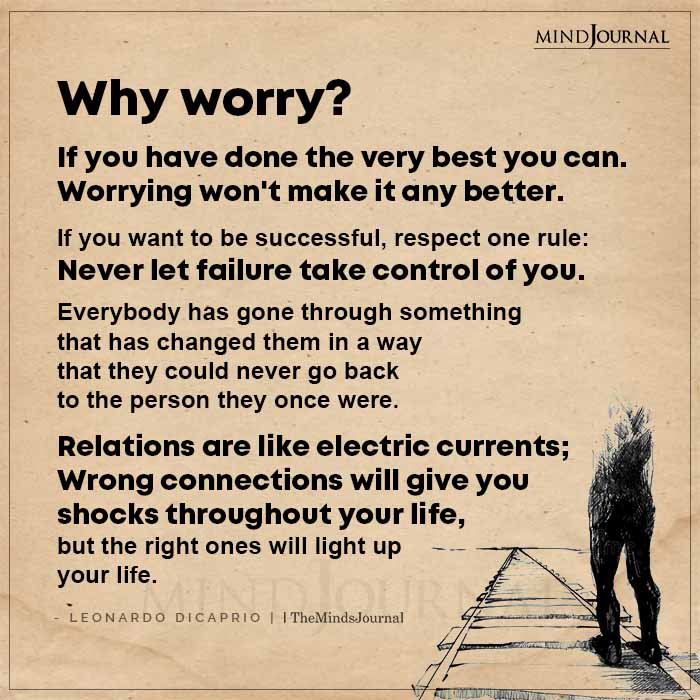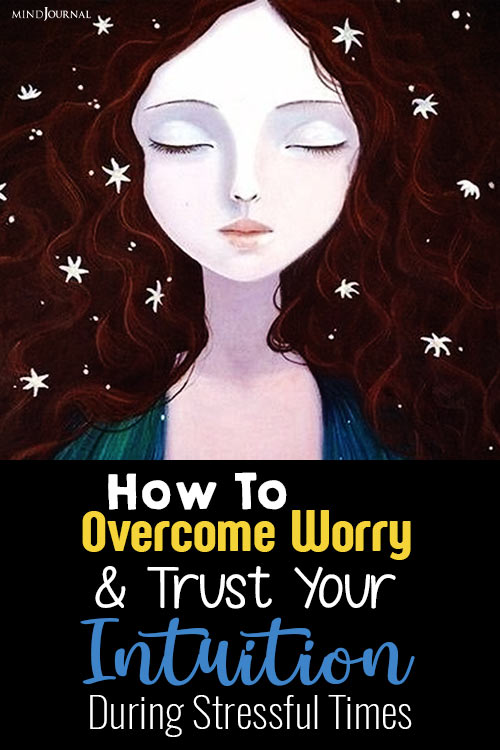Anxiety can be overwhelming. When we struggle with a decision, tuning to our gut feelings may not be that easy, especially when the situation throws many facts at us. But the answer to how to overcome worry during stressful times lies in our gut feelings. By learning to trust your intuition, you can actually reduce anxiety and overcome worry.
The world is experiencing unprecedented amounts of stress as humanity finds its way through the pandemic. The volume is enormously cranked up on stress and fear. Of course, worry is natural but we must do our best to shift out of obsessive worry and focus more on hope, health, intuition, and a positive future. Is this unrealistic? I don’t think so.
As a psychiatrist, I’ve seen with patients and in myself that resisting or stiffening during this period only increases stress, wears you out, and depletes power, what I call the side effects of bunker mentality. If you fight pain or adversity, the spasm of discomfort tightens. But when you relax more, your mind, body, and spirit relax, and suffering lifts.
Empaths and highly sensitive people are particularly susceptible to feeling overwhelmed and worried in stressful times, especially when they obsessively watch the news about daily updates, trauma, economic stress, and violence, and then are not able to turn bad news off.
Read: 6 Important Grounding Tips For Empaths and Highly Sensitive People
Also, they are prone to absorbing the suffering of the world. They are natural caregivers and helpers but need to clarify healthy ways to help in this crisis. During these times, staying grounded and centered is the key to an empath’s well-being.
How To Overcome Worry

I look at life as one big meditation practice. Our practice becomes how to center ourselves in the midst of chaos, how to calm an overactive mind (a big cause of suffering) and how to awaken your intuition more than ever before.
Intuition, the quiet voice within, supports your happiness and survival. Each day you want to keep listening to its advice. Keep asking your intuition, “Where do I feel safe?” “How can I thrive today?” and “What do I need to learn and heal during this stressful time?”
Then, take a few deep breaths, quiet yourself, and listen to what your inner voice says. This may take practice, but the answers will come if you stick with it. The idea is to look at anything in life, including a crisis, as a vehicle to foster your own (and the world’s healing.)
To bring yourself back into balance paying attention to your breath will help to center and relax you. In Hindu traditions, the breath is revered as prana, the sacred life energy. You can tap into this vitalizing force to reduce stress. Your breath cleanses toxicities from your body.
The purifying power of breath involves inhaling oxygen and exhaling carbon dioxide. You also can exhale harmful emotions such as anxiety and fear. Conscious breathing will anchor you in your body and release stress.
Read: How To Deal With Feeling Overwhelmed With Tasks
I also recommend practicing the following restorative mantra and other techniques from Thriving as an Empath: 365 Days of Self-Care for Sensitive People to release the worry you may be carrying in your body. Having a daily self-care practice is invaluable during these over-the-top stressful times.
A Mantra To Release Worry
Chronic worry is your attempt to gain control over something that is out of your control. My Daoist teacher says, “If you are climbing a mountain and worrying about tomorrow, you will have a very difficult time.” Stretch your soul and set yourself free of worry (even for a few minutes) by repeating this mantra as many times each day as your like:
May I be free of worry?
May I be free of stress?
May I stay in Now?
May I not project my fears into the future?
May I be free?
Set your intention. I will have mercy on myself when I worry. I will ask the suffering of worry to lift so I can face my challenges with clarity and faith.
(Excerpt from “Thriving as an Empath: 365 Days of Self-Care for Sensitive People” by Judith Orloff, MD)
Written By: Judith Orloff. M. D.
Originally Appeared On: Dr. Judith Orloff











Leave a Reply